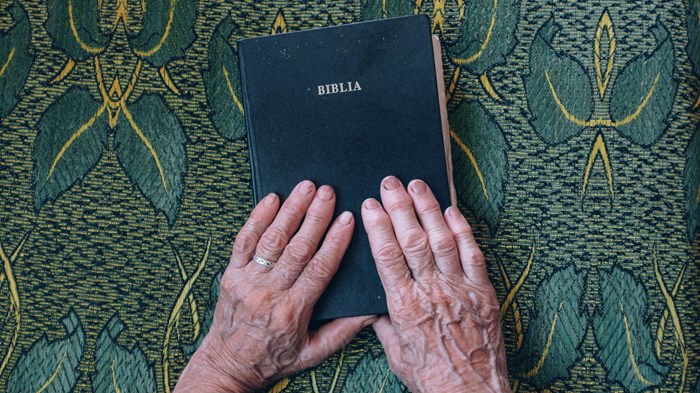The Church Doesn’t ‘Have’ Love; The Church Is Love.

This post concludes a two-part series from Dr. George Kalantzis. For part one, see: Washing Feet and Changing Lives
Basil had understood long ago what theologian Stanley Hauerwas has often repeated in our own time, namely that “the church does not have a social ethic, but rather the church is a social ethic.” That is, the Church is not one more player in the cluttered marketplace of ideas of virtue and social ethics, vying to show how much better the Christian way of life, morality, or even spirituality is. The Church is not in a mode of competition with the world. Nor does God ask her to be. Rather, the Church is the manifestation of the new life that comes in Christ. Basil taught his monks that the culmen perfectionis (ie. the height of perfection) of Christian spirituality is none other than the culmen charitatis, that is, the utmost exercise of charity. No one was exempt, not even the monks.
The only way the world may know who God is, is to look at those who claim to have a relationship with God, those who claim to have been born of God, and see the very character of God reflected in us. As Peter Leithart has argued, “The first and chief defense of the gospel, the first ‘letter of commendation’ not only for Paul but for Jesus, is not an argument but the life of the church conformed to Christ by the Spirit in service and suffering. A community of sinners whose corporate life resembles Christ—that is the Church’s first apologetic. The very existence of such a city is our main ‘argument.’” Or as James K.A. Smith puts it: “The church doesn’t have an apologetic; it is an apologetic.” When the world asks, “Is there a God?” God’s first and only response is, “Look at my people, called by my name” (cf. Isaiah 42:10–43:28). Like Israel of old, the Church is God’s declaratory statement to the world of who God is, of what hope is, of what life without fear looks like.
At the end, “Love your neighbor” (Mark 12:31, Matt 22:39) is not an idiosyncratic peculiarity for the few; it is a dominical command. The Church is God’s declaratory statement to the world of who God is, of what hope is, of what life without fear looks like. Love and kindness, acts of mercy and justice, are not optional for the Christian; they are the phenotypical expression of our genotype.
The church needs today leaders who understand that even though salvation might have been personal, it is never an individual experience. Christians always need leaders who are willing to call the Church to make manifest to the world what it means to shed the vestiges of optimism and live in hope instead.
Like the fourth century, the Church today needs to be able to show the world what it means to live in an economy of abundance, an economy of manna, where plenty and grace overflow, precisely because “they cannot repay you.” Amidst the prevailing economy of this world, the economy of fear, of scarcity and anxiety, the maddening futility of self-preservation and self-interest is supplanted by the Lord’s invitation to see ourselves as co-participants in Christ’s giving of himself.
Even in the time of catastrophe and overwhelming need, Basil understood that the Christian ministry to the world is not simply holistic, but truly wholistic. Holistic ministry looks at the holes in the system, the needs that require our attention and seeks to address those. Christians, however, recognize that we are whole people, in need of wholeness of life, spirit, mind, and body. Unlike many of the Greek and Gnostic philosophies that dominated the religious arena of the early Church, and who promised an escape from this word and the sufferings of this existence, the good news of the Gospel are rooted in the radical message that God was redeeming the world and making all things new: “Behold I make all things new” (Rev. 21:5).
Peter J. Leithart, Against Christianity (Moscow, ID: Canon, 2003). 99-100.
James K. A. Smith, Who’s Afraid of Postmodernism (Grand Rapids, MI: Baker Academic, 2006), 29.
The Better Samaritan is a part of CT's
Blog Forum. Support the work of CT.
Subscribe and get one year free.
The views of the blogger do not necessarily reflect those of Christianity Today.




















